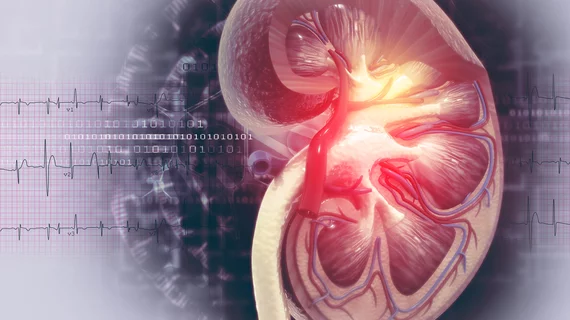Google’s DeepMind AI identifies kidney patient risk
An AI company owned by Google parent company Alphabet, DeepMind, is able to predict future acute kidney injuries and could potentially save lives, according to new research published in Nature.
Researchers from DeepMind, which is based in London, developed a deep learning approach to predict the deterioration of patients by using acute kidney injury as an exemplar. The model was developed with the records of more than 700,000 patients across 172 inpatient and 1,062 outpatient sites.
The model predicted more than half––55.8%––of all inpatient episodes of acute kidney injury and 90.2% of all acute kidney injuries that required dialysis. The lead up time was 48 hours and the model had a ratio of two false alerts for every true alert.
Despite this, the system was still 20% more accurate than an existing prediction model that assesses the likelihood of kidney injury, according to the authors.
The findings have implications for saving lives in hospitals, as 11% of all deaths in hospitals come from a failure to recognize and treat deteriorating patients.
“Although the recognition and prompt treatment of acute kidney injury is known to be challenging, our approach may offer opportunities for identifying patients at risk within a time window that enables early treatment,” lead author Nenad Tomasev, from DeepMind in London, et al. wrote.

